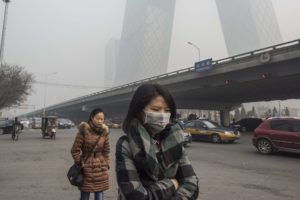Climate Crisis in China
Authors . Climate Change . UncategorizedChina, as the world’s most populous country and one of the largest economies, plays a significant role in the global climate crisis. It faces a range of challenges related to climate change, as well as contributing to global greenhouse gas emissions. Here are some key points regarding the climate crisis in China:

- Greenhouse Gas Emissions: China is the world’s largest emitter of greenhouse gases, primarily due to its heavy reliance on coal for energy production. The country has made efforts to reduce its emissions in recent years, but it still faces significant challenges in transitioning to cleaner energy sources.
- Air Pollution: China’s rapid industrialization and urbanization have led to severe air pollution in many parts of the country. The burning of fossil fuels, industrial emissions, and vehicle exhaust contribute to high levels of particulate matter and harmful pollutants, which have detrimental effects on public health.
- Renewable Energy: China is also a global leader in renewable energy, particularly in solar and wind power. The country has made substantial investments in renewable energy infrastructure and has set ambitious targets for increasing the share of renewables in its energy mix. These efforts aim to reduce carbon emissions and improve air quality.
- Energy Efficiency: China has implemented energy efficiency measures to reduce its carbon footprint. These include strict energy efficiency standards for buildings and appliances, as well as promoting energy-saving technologies and practices.
- Coal Consumption: Despite efforts to diversify its energy sources, China still heavily relies on coal for electricity generation. The country has been working to reduce its coal consumption and has implemented policies to close down outdated and inefficient coal-fired power plants. However, the transition away from coal remains a significant challenge.
- International Climate Cooperation: China has been actively engaged in international climate negotiations and has committed to taking actions to address climate change. It was a signatory to the Paris Agreement and has set targets to peak its carbon emissions and increase the share of non-fossil fuel energy in its total energy consumption.
- Climate Adaptation: China is also investing in climate adaptation measures to address the impacts of climate change. These include initiatives to improve water management, enhance agricultural resilience, protect coastal areas, and strengthen disaster preparedness.
It is worth noting that China’s efforts to address the climate crisis are complex and multifaceted, as the country faces the challenge of balancing economic growth, energy security, and environmental sustainability. The government’s commitment to transitioning to cleaner energy sources and reducing emissions will be crucial in mitigating the climate crisis both domestically and globally.

In this article, AI plays a main role as a writer. When using it, there are two obvious sides about its advantages and disadvantages. In terms of advantages, it allows me to have an comprehensive perspective about China’s climate crisis, especially when you have nothing in mind, it’s a great help. Also, AI has the capability to gather as much as information from various resources, so their response is very complete. When I typed “climate crisis in China”, Chatgpt will give me information including the current situation, treatments China’s government has taken, reflection, ect. Therefore, in my mind, chatgpt is a great way to begin the article, it will give you several aspects to think and write further.
However, its disadvantages are also worth to be noted. Chatgpt has a fixed pattern for each topic, for example, no matter I typed “climate crisis in China” “methods China took to face climate crisis” or”Current situation of climate crisis in China”, the response from Chatgpt are all the same. In my opinion, the deeper information may still need human being to complete. When it comes to superficial information, then the situation totally change, many scientists are concerned about the future that human will be replaced by AI. It’s an realistic problem and needs to be paid attention to.
Credit: OpenAI.com